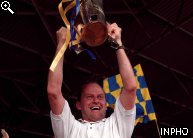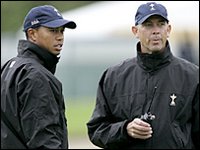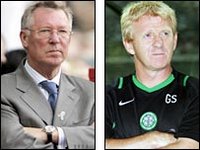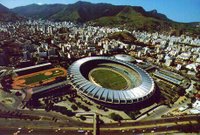Long Road to the Promised Land for Irish Clubs

And so the Irish interest in another season's European club competitions comes to an end in the now-familiar fashion - gallant, but ultimately clear-cut.
The pattern of Irish clubs' involvement in the early weeks of the European competitions has taken on the shape of an almost identical annual choreography, with only the identity of the performers changing:
- An early round is negotiated against equally downmarket opposition from one of Europe's equally downmarket leagues, with summer football giving the Irish team a telling advantage.
- (Optional) A famous victory is notched up over a slightly more upmarket outfit from a slightly more upmarket league, with summer football giving the Irish team a telling advantage.
- A glorious failure and exit follows at the hands of a strong team from a strong league, with summer football mattering not a whit with the opposition's superior players in full regular season stride.
The positive reasons for summer league football are several, and one of them was the fact of the advantage it provided Irish clubs in negotiating the perilous waters of the early qualifying rounds.
In 2003/04 - a season after the introduction of summer football - Bohemians overcame Bate Borisov in sufficiently impressive style to generate some confidence at a packed Dalymount Park for their second qualifying round tie against Rosenborg. The seasoned Norwegians soon dampened such giddyness with a 1-0 victory and underlined a clear superiority with a 4-0 thumping in the second leg.
Shelbourne raised the bar the following season, defeating KR of Reyjkavik, then, in thrilling fashion, Hadjuk Split of Croatia. With the hallowed ground of the group stages almost within view, a rusty Deportivo La Coruna disposed of Shels 3-0 on aggregate.
Last season Glentoran were comfortably dispatched by Shelbourne again, before Steau Bucharest dispensed the now familiar medicine in the second qualifying round, and this season Cork City defeated Apollon Nicosia and subsequently lost to Crvena Zvezda (Red Star Belgrade to your old man).
Similar campaigns were enjoyed by Irish clubs in the UEFA Cup, Derry's victories over IFK Gothenburg and Gretna and loss to Paris St. Germain following the regular pattern closely.
So while Irish clubs have clambered a few notches up the precarious ladder of European club football - the embarassing first round exits seem a thing of the past - the glass ceiling is all too perceptible.
Summer football certainly gives the clubs an advantage in those early rounds, but its benefits run dry when the stronger teams are fully submerged into their own seasons. The impression at the moment is of the Irish clubs pressing their faces up against the window of European football's gala party, but having had their invitations lost in the post.
Still, incremental improvement is better than none at all. Ireland's country coefficient rating (the calculation used by UEFA to decide on seedings for the club competitions and a figure dependent on club performances in Europe over the five most recent seasons) has improved drastically in the last three seasons. Hypothetically, were this seasons performances to be repeated or improved upon over the next several seasons, our country cooefficient could conceivably overtake that of the likes of Sweden, Croatia or Israel.
Eventually, more favourable draws might become a regular occurence, stronger seeded teams would be avoided and a place in the UEFA Cup group stage could be achievable.
And who knows, further down the line that famous anthem might yet ring out to herald an Irish club's entry into that promised land, the Champions League group stage.
....Read more!
















